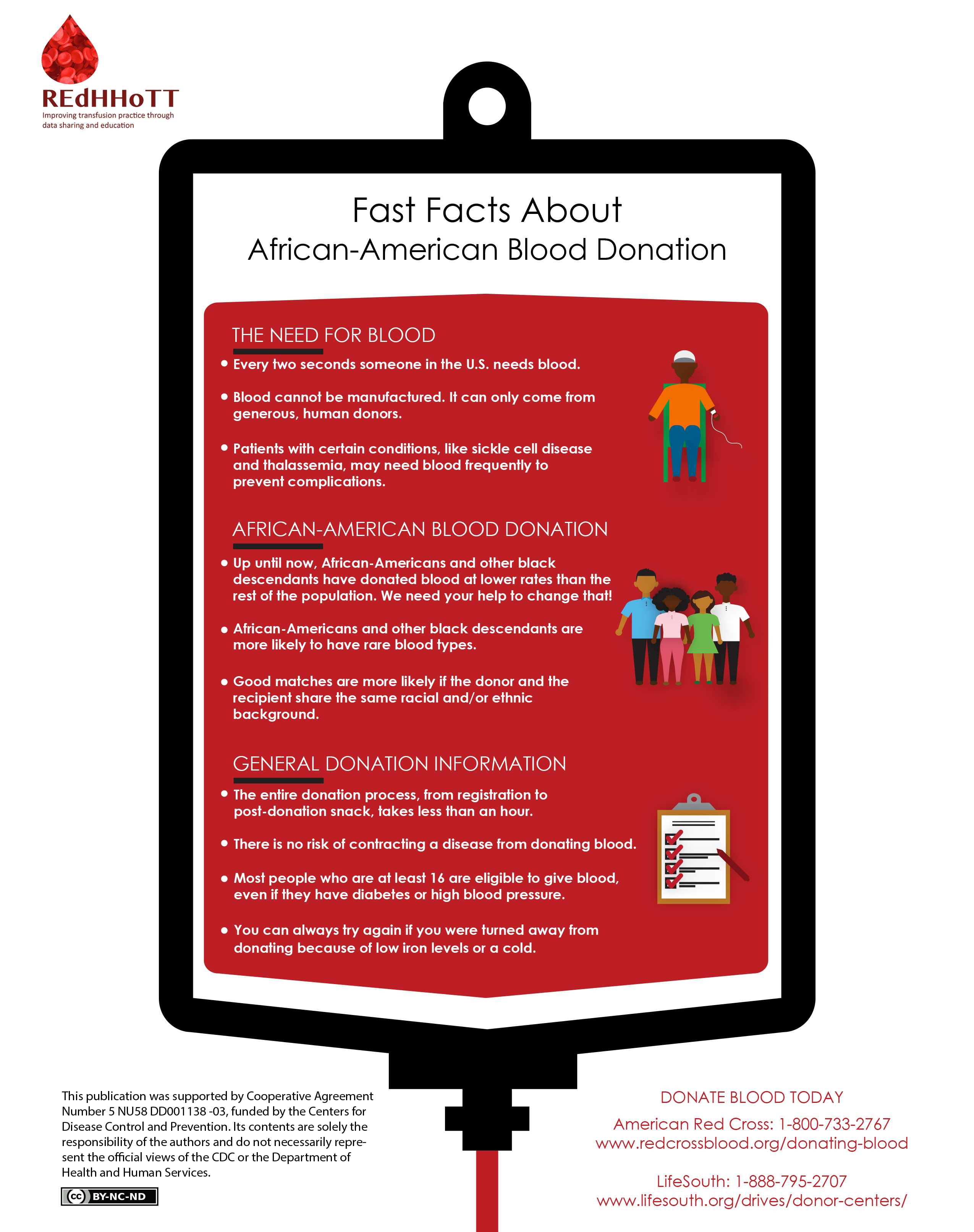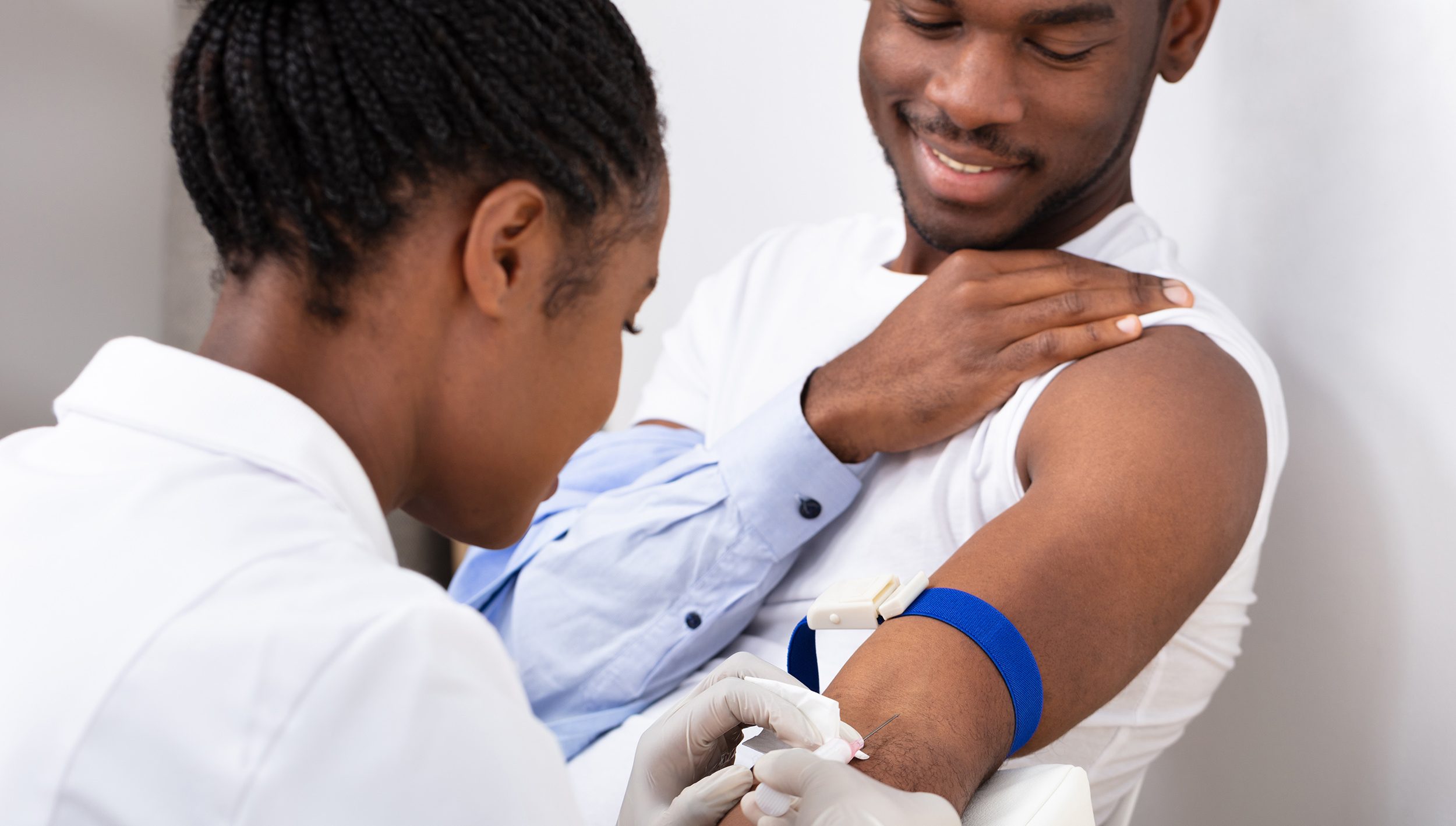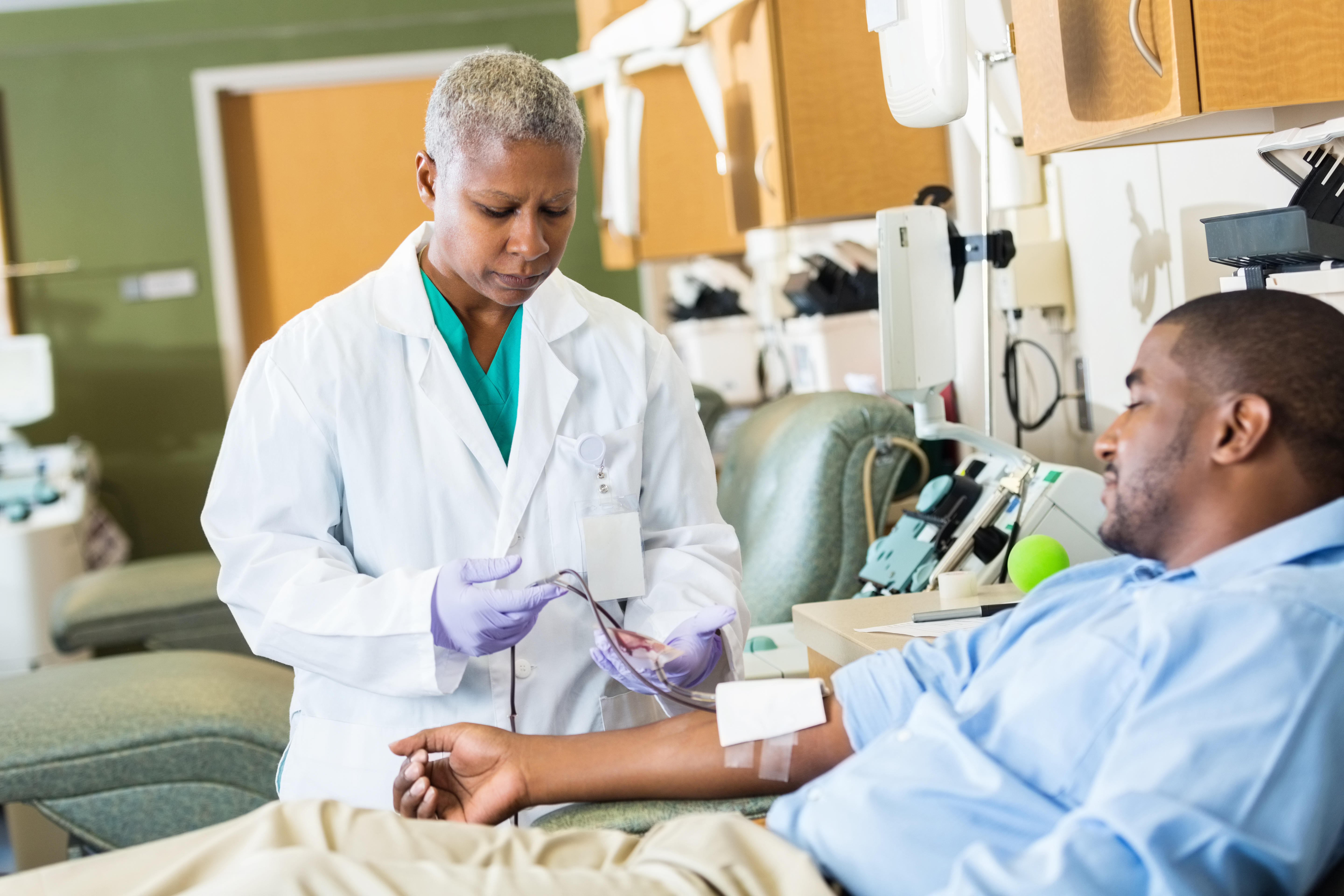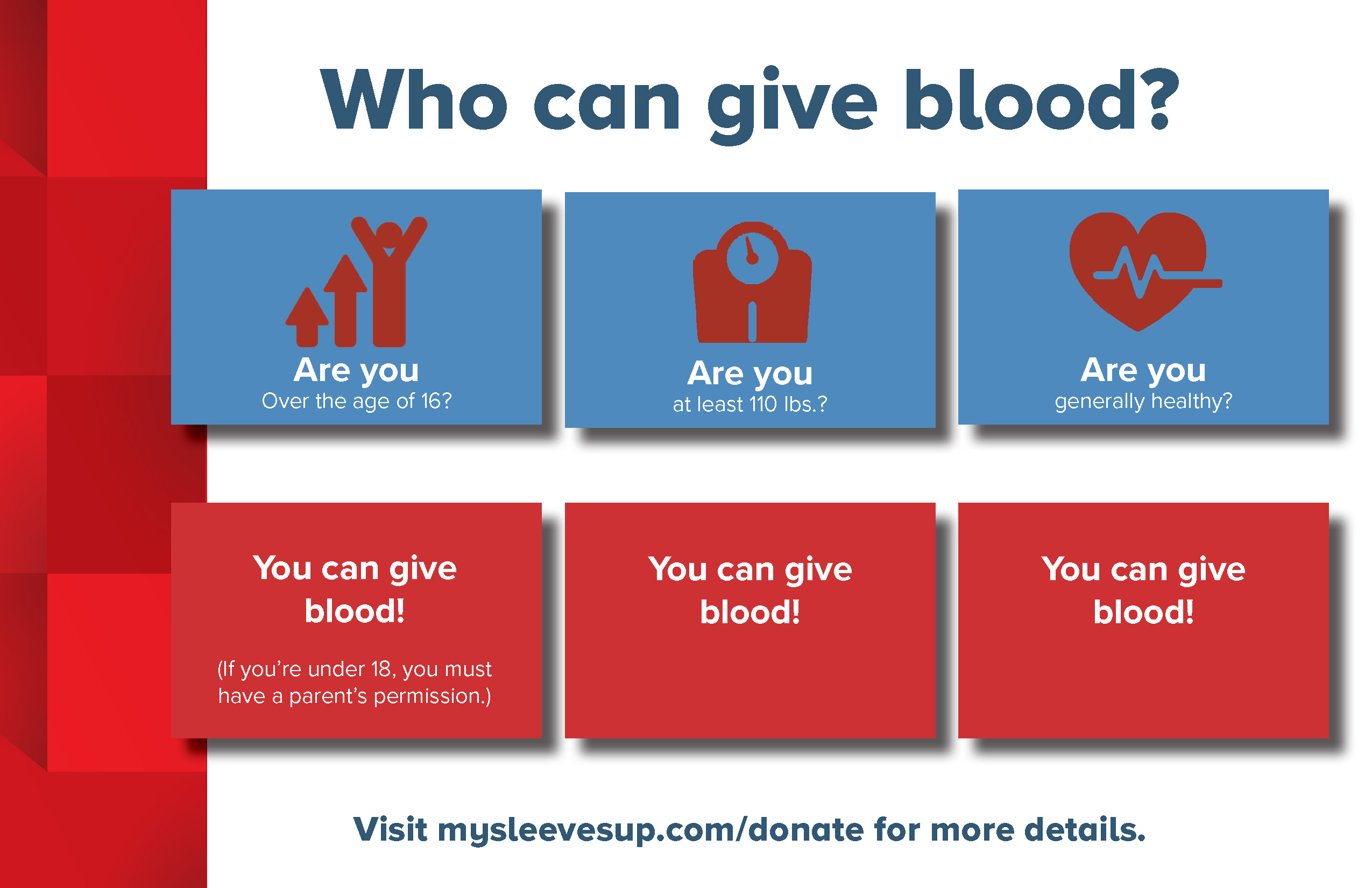
DONATE
 Every two seconds somebody needs blood in the United States — somebody in a serious car crash, a cancer patient, a new mom with complications at delivery. People with blood disorders such as thalassemia and sickle cell disease may need regular blood transfusions.
Every two seconds somebody needs blood in the United States — somebody in a serious car crash, a cancer patient, a new mom with complications at delivery. People with blood disorders such as thalassemia and sickle cell disease may need regular blood transfusions.
Scientists can’t make new blood in a lab, but our bodies constantly make new blood cells, so most healthy adults can safely donate blood every other month. The nation’s blood supply comes from generous donors willing to give their blood to help somebody in need. There is a constant and urgent need for blood. But fewer than one in 10 people who can donate blood actually do each year and even fewer African-Americans and Hispanics donate blood.
Blood is more likely to be a safe match when the donor and the recipient share the same racial or ethnic background. To ensure that blood is available for everybody who needs it, we must diversify the blood supply.
Become a donor. It is simple and safe. Roll up your sleeve and save a life today. Even if you cannot donate blood, there are still ways to help. You can motivate others to donate or host a blood drive.
Who can give blood?

Are you
under the age of 18?
You can give blood!
(You may need your parent's permission to donate. Check with your local blood donation center.)

Are you
at least 110 pounds?
You can give blood!

Are you
generally healthy?
You can give blood!
If you have ever been turned away or deferred from donating blood,
you can change a "No" to a "Now, I can!"
Useful Tools
These resources may be freely reprinted and reposted.
